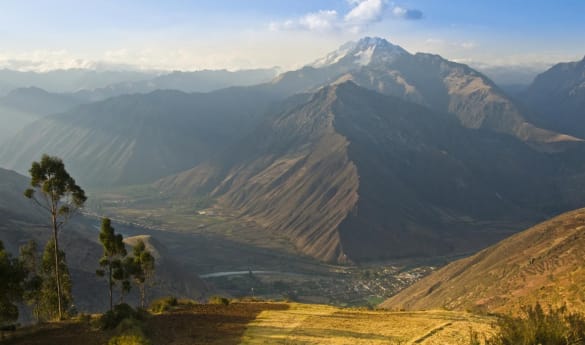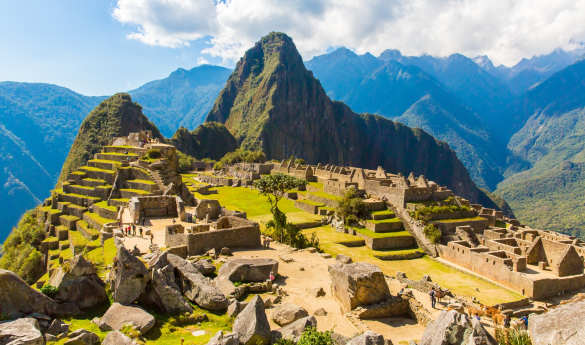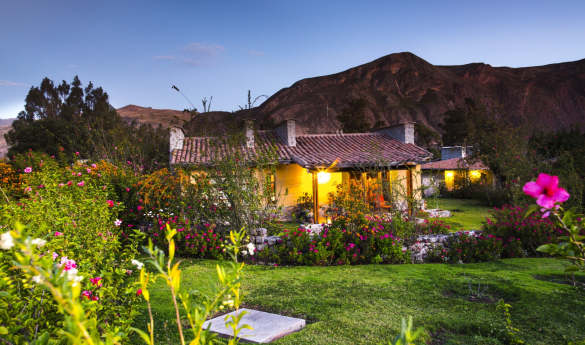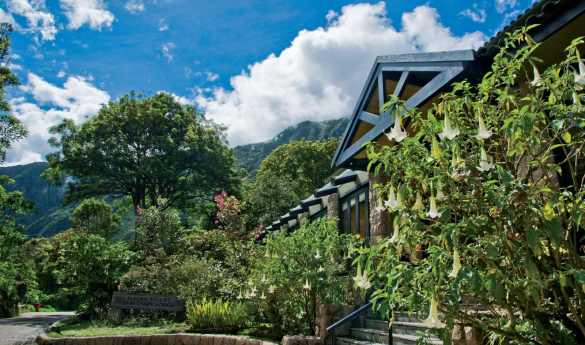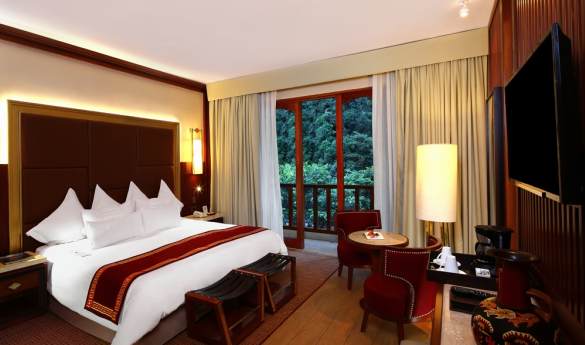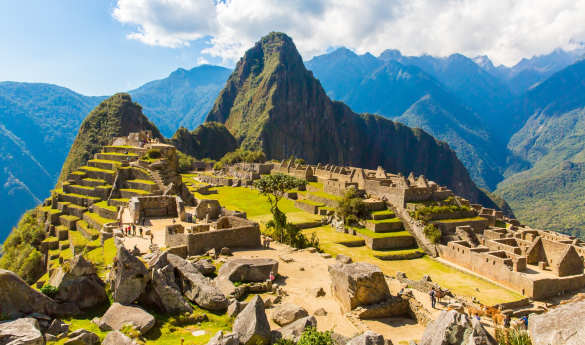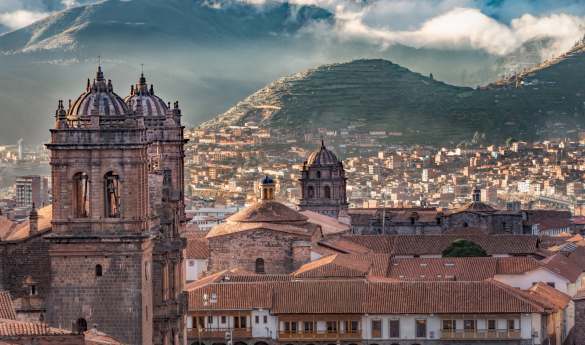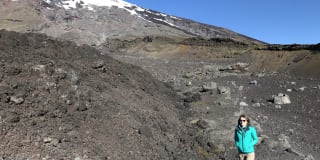The Inca Trail: What to Know Before You Go
Once a pilgrimage route for Incan nobility, the revered Inca Trail is now one of the most celebrated treks in the world.

The Inca Trail remains the quintessential Peruvian experience thanks to its spectacular scenery and archaeological significance. Whilst treks are demanding and acclimatisation is essential, walking through the heart of the Peruvian countryside is an unforgettable experience.
This ancient hiking trail is the path the ancient Incas would have used to reach the citadel of Machu Picchu thousands of years ago. Passing through the spectacular Andean landscapes, the route winds its way through the dramatic scenery of the Sacred Valley towards the celebrated ‘Lost City’.
Whether you choose the 4-day trek or join the trail on its final leg as it approaches Machu Picchu, following in the footsteps of the Incas is guaranteed to be a highlight on any Peru itinerary.
Where Does the Inca Trail Start?

Before you begin your trek, you’re probably wondering where the Inca Trail is and how you can get to it.
The closest city is Cusco, the ancient capital of the Inca Empire, and anyone planning to tackle the Inca Trail starts their journey here. There are no direct flights from the UK to Cusco, but once you get to South America, it’s only an hour and a half away from Lima by plane.
While many people just use it as a base for travelling to Machu Picchu or the Sacred Valley, we’d recommend setting aside some extra days at the start or end of your trip to explore everything Cusco has to offer. Spending time in Cusco before you do the hike can also help you acclimatise to the altitude in the region and minimise your sensitivity to altitude sickness during your hike.
The trail itself has two starting points: Piscacucho or Quillabamba, also known as ‘km 82’ and ‘km 88’ respectively (named after how far outside the city they are). From here, you’ll travel through lush cloud forests, mountain valleys and isolated Incan ruins, all showcasing the natural beauty and fascinating history of the region. From snow-capped peaks to stunning glacial lakes, the jaw-dropping panoramas are impressive from the first day of your trek to the last.
Hiking the Inca Trail

Before you set off on your adventure, here is everything you need to know before you go:
Please note that due to government regulations, you must hike the Inca Trail with a guide. Luckily, our travel specialists can help with all the admin, helping you find a licensed operator and secure the necessary permit.
How long is the Inca Trail?
The 4-day Inca Trail is about 25 miles long, but many tours will also offer a shorter route which only involves part of the trail.
How long does it take to hike?
The 4-day Inca Trail (25-mile) route takes four days and three nights altogether, while shorter routes can take two days and one night. How many hours you spend walking each day will depend on your fitness and the speed of the group.
How hard is the Inca Trail?
This is a moderately difficult hike, and we’d recommend doing some preparation beforehand, especially if you’ve never done a long trek before. The difficulty does vary across the trail, with mountainous or particularly high sections, such as Dead Woman’s Pass, being the toughest points.
While people of all ages tackle the trail, it’s important to be mindful that this trip also involves camping, and there are limited toilet facilities along the route, so the hike may not be suitable for young children or older family members.
What route does the trail take?

If you’ve ever looked at a map of the Inca Trail, you might notice that different routes feature different destinations and pit stops. While there’s one main trail, the hiking itinerary may vary from group to group, especially when it comes to campsites.
Here’s what a typical breakdown of the four-day route might look like:
What to Pack for the Inca Trail
From making sure you’ve got your camera to bringing enough layers for the cooler nights, working out what to bring to the Inca Trail requires a bit of consideration.
There are three main ways to think about packing for the Inca Trail:
- Things you need for your Peru holiday
- Things you need during the hike
- Things you need at camp
Any general luggage for your holiday can be left in storage wherever you’re staying before the trek. You’ll then be able to take a small day bag with you on the hike itself, plus a bag weighing up to 6kg with all your camp essentials like your sleeping bag and clothes.
Porters will carry this second bag for you during the day, but that does mean you’ll only have access to this bag when you arrive at camp for the night. So, you’ll need to think carefully about how you split up your belongings.
Clothes
Given Peru’s equatorial climate, you’re probably wondering what to wear on the Inca Trail. Depending on when you travel, you’ll experience different conditions. If you visit between November and January, you’ll need more waterproof gear to tackle Peru’s rainy season, but if you travel in June or July, breathable clothing will keep you cool as you hike.
No matter what time of year you visit, your clothes should keep you warm, dry, and protect you from the sun.
Here’s what we recommend packing:
- 2-3 pairs of hiking/sports trousers
- 3-4 short-sleeve tops
- 1-2 long-sleeve tops
- 1 thin fleece
- A warm hat
- A cap or lightweight hat
- A good pair of hiking boots
- A pair of slip-on shoes for camp
- A rain poncho to keep you and your pack dry
- 5-6 pairs of socks (plus spares if you’re travelling in the rainy season)
Most of this will go in your porter bag, but it’s a good idea to pack a warm layer, your hat, and poncho, plus a spare pair of socks in your day bag in case the weather changes.
Hiking equipment and gear
Trekking the Inca Trail does require a fair bit of equipment, but again, most of this can go in your porter bag, so you don’t have to carry it around the whole time.
Here are some essentials we recommend for hiking the Inca Trail:
- A sturdy day bag
- A water bladder and lightweight water bottle
- A sleeping bag and sleeping mat
- An inflatable pillow
- Trekking poles
- A headlamp
- A microfibre towel/washcloth
Luckily, most tour operators will provide key supplies like a sleeping bag and trekking poles, but it’s important to check.
Toiletries
Alongside your basic toiletries, there are a few things we recommend bringing along during your hike:
- Body/face wipes
- Antibacterial wipes
- Suncream
- Any medication
- Altitude-sickness tablets
- Plasters
- Tissues
It’s worth noting that there are no showers and limited toilet facilities along the route, so we recommend packing your toiletries in your day bag so you can refresh on the go.
Other essentials
Finally, here are some last bits to go in your day bag:
- Sunglasses
- Phone and battery pack
- Camera
- Snacks
- Passport (you’ll need it to enter the park)
- Sandwich bags to keep everything dry and organised
Book Your Peru Trip with Scott Dunn
Ready to take on the Inca Trail?
At Scott Dunn, our travel specialists are on hand to help you craft the perfect Peruvian holiday. From securing your Machu Picchu permit to planning a route for exploring the rest of Peru before or after your trek, we’ll handle everything and create a trip that’s truly bespoke to you.
Take a look at our suggested tours, or get in touch with a travel specialist today to start planning your adventure.
Meet our specialists
Call us on 020 8682 5430 to start planning your holiday
Why Scott Dunn?
Unique to You

- We listen to your travel goals and craft unique trips that are bespoke to you.
- We’re with you every step of your life’s travel journey, from honeymoons to family trips and beyond.
Seamless Service
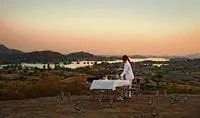
- Global offices in the UK, US, and Singapore for 24/7 seamless service.
- We offer flexibility if your plans change so you can book with confidence and peace of mind.
Carefully Curated Collection
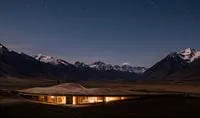
- We’ve curated an elevated collection of accommodation, experiences, and guides.
- Committed to fostering close global relationships to continue bringing you unique experiences.
Luxury in Every Sense

- We deliver a sense of luxury that matters most to you.
- Awarded Condé Nast Traveller’s Top Travel Specialists in the World 12 years in a row.




